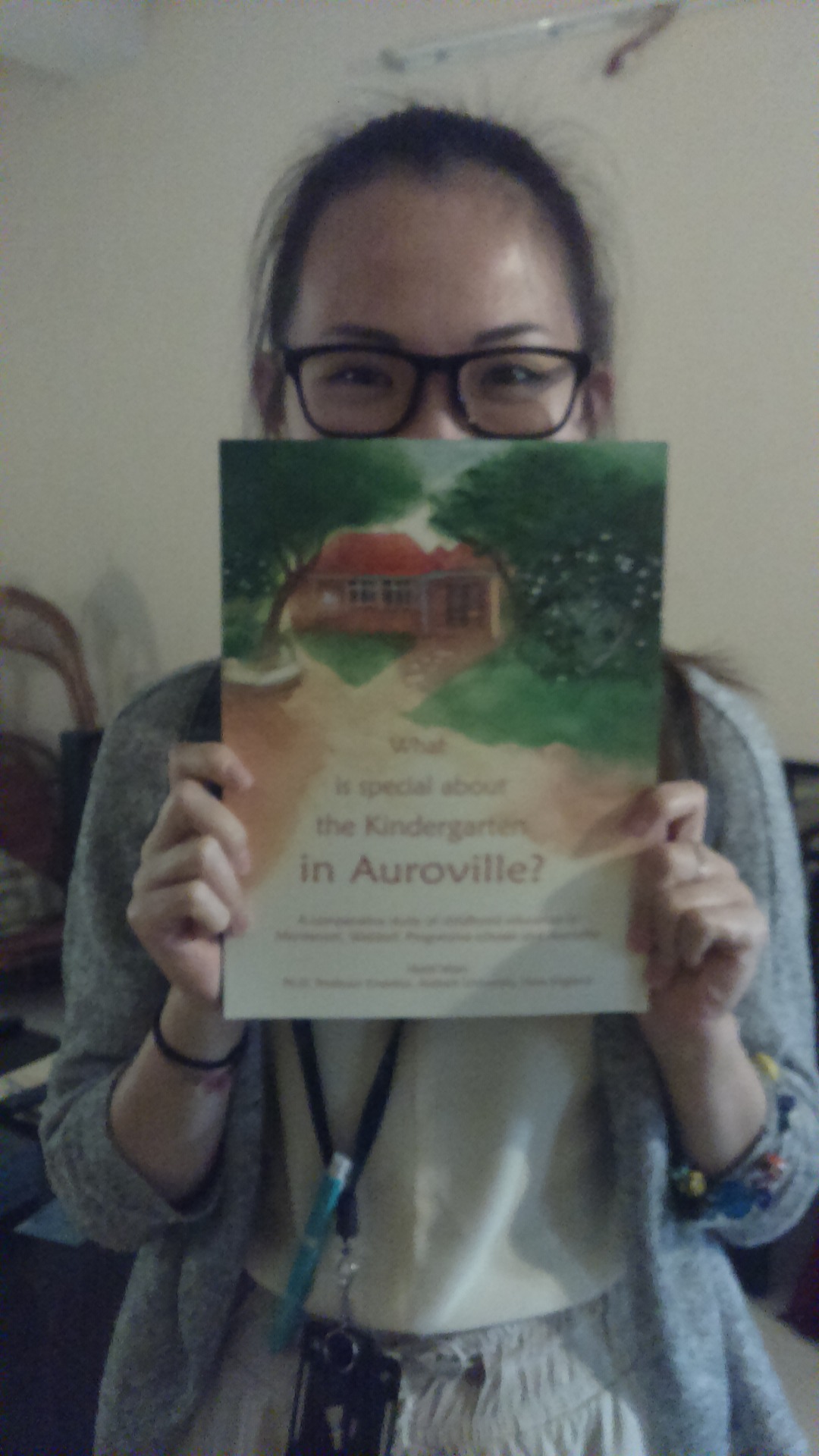When Lunara brought this book home after her trip to Pondicherry, I couldn’t wait to dive right in. There’s a part of me that’s always wondered how an early years programme would look like in an alternative school.

While ‘What is special about the kindergarten in Auroville?’ does in no way claim to be an academic text, the fact that it is written by a professor (Heidi Watts) lends to it some air of credibility. Although the book was by no means paradigm shifting for me, I found a few ideas listed as practices in the kindergarten fairly novel and interesting. Ideas such as a ‘quiet room’ and an ‘activity room’ besides uniquely shaped blocks (why do all building blocks inevitably go the lego route anyway?) really spurred on many thoughts in my head.
What really makes the kindergarten stand apart for me, is its authentic inclusivity. Too many schools self-proclaim themselves as inclusive, when they usually only meet one or two parameters of inclusivity. Merely accommodating special needs by ‘mainstreaming’ is not a sole determinant of inclusivity. It was heartening to see children of differing ethnic and socio-economic backgrounds intermingle (in the school) in the book. Of course, only someone who’s actually been there (like Lunara!) is in a position to tell us how much boundaries are really being pushed. Alternative schools generally struggle with accommodating diversity of belief, and the apparent self-reflexivity does not always suffice in ensuring such spaces do not acquire an exclusive, cult-like status in the local communities they belong to.
“Too many schools self-proclaim themselves as inclusive, when they usually only meet one or two parameters of inclusivity…”
A quick and informative read, the ‘book’ does box itself into a corner by attempting to take on comparisons between early years programmes in Waldorf, Montessori, progressive schools and the kindergarten itself. What could have been an interesting and nuanced comparison is sadly reduced to grand sweeping statements that only base themselves on the writer’s subjective observations and limited experiences of working in say, a Montessori school. I felt like a more extensive use of the listed bibliography and perhaps by referring to more sources and examples within these traditions and finding specifics, for instance, within the progressive tradition would have made the book a more rigorous and useful read that would only have enhanced Auroville’s credibility further.
But I must say the book never claimed to aspire to such objectivity. In so far as its implicitly stated aims go, it perhaps only seeks to introduce the kindergarten at Auroville to the general reader or visitor. It is fairly successful in this regard, and leaves the reader feeling that the kindergarten must be a special place and wanting to know more.
-Ferzine
